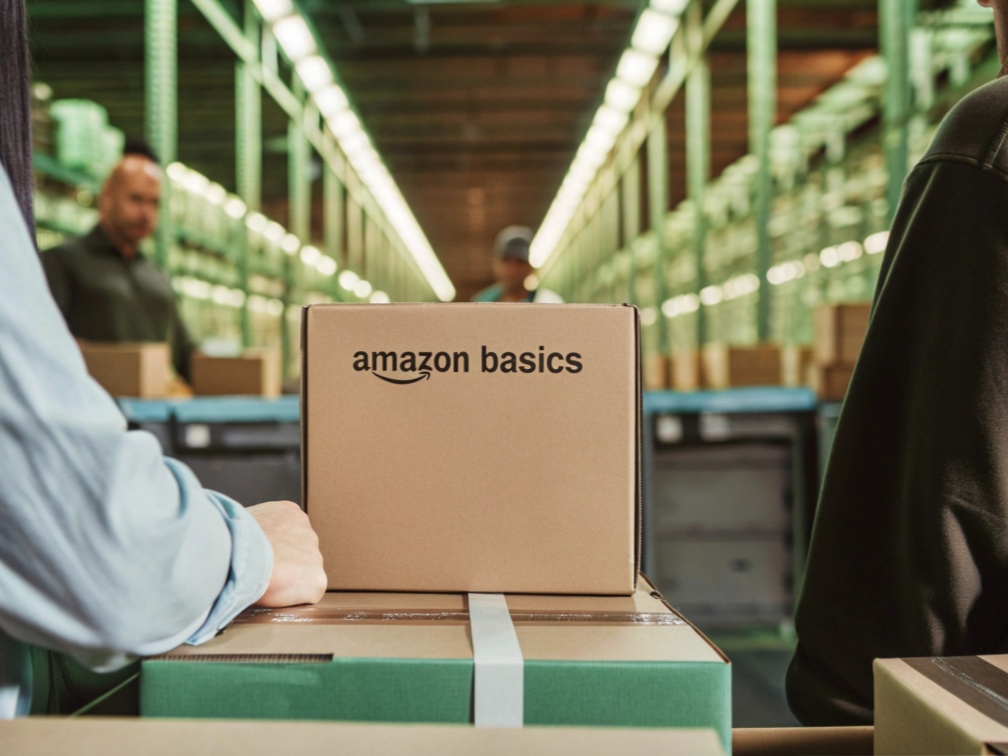Private label wholesale is a powerful business model, but it’s often misunderstood. If you want to build a unique brand without starting from scratch, private labeling offers an effective solution.
Private label wholesale1 is when businesses buy generic products from manufacturers, customize them with their own branding, and sell them under their name. It allows brands to create unique product lines without manufacturing from the ground up.
Private labeling is transforming businesses worldwide. Let’s explore this model and how it can work for your brand.
What is an example of a private label?
Private labeling is more common than you might think. Many big brands use this strategy to dominate markets.
A popular example of private label is Amazon Basics2. Amazon buys generic products from manufacturers, adds its branding, and sells them as "Amazon Basics" to create a budget-friendly product line.
More Examples of Private Labels
Private labeling exists across industries, from fashion to food. Here are some key examples:
- Supermarket Brands: Stores like Walmart sell private-label products under "Great Value," offering cheaper alternatives to big-name brands.
- Clothing Lines: Many fashion retailers partner with manufacturers to create exclusive, branded collections. For instance, JF Apparel can produce private label dresses for clients.
- Cosmetics: Brands like Sephora have their own private-label beauty products, often sold alongside other high-end brands.
| Private Label Brand | Industry | Parent Company |
|---|---|---|
| Amazon Basics | Electronics & Home | Amazon |
| Great Value | Grocery | Walmart |
| Sephora Collection | Beauty | Sephora |
Private labeling helps businesses build brand loyalty, reduce competition, and increase profits.
What is the difference between private label and wholesale FBA?
While private label and wholesale FBA3 both rely on selling products, the two models operate very differently.
Private label involves creating a branded product line, while wholesale FBA focuses on reselling existing branded products on Amazon.
Comparing Private Label and Wholesale FBA
Here’s a breakdown of the key differences:
| Feature | Private Label | Wholesale FBA |
|---|---|---|
| Product Ownership | Custom-branded products | Reselling branded products |
| Competition | Lower (unique products) | Higher (existing brands) |
| Startup Investment | Higher (branding & customization) | Lower (bulk purchases) |
| Profit Margins | Higher due to uniqueness | Lower due to competition |
- Private Label: You have complete control over branding, packaging, and product design. This helps you stand out and build customer loyalty.
- Wholesale FBA: You buy existing branded products in bulk and resell them. It’s easier to start but comes with more competition.
Both models have advantages depending on your goals. Private label is better for long-term brand building, while wholesale FBA is ideal for faster entry into the market.
Is it illegal to private label products?
A common question about private labeling is whether it’s legal. Let’s clear up the confusion.
No, it’s not illegal to private label products as long as you work with legitimate manufacturers and don’t infringe on trademarks or copyrights.
How to Avoid Legal Issues with Private Label4
While private labeling is perfectly legal, there are some key steps to ensure compliance:
- Avoid Trademark Infringement: Ensure your brand name, logo, and product design don’t resemble existing trademarks. Conduct trademark research before launching.
- Choose Reliable Suppliers: Work with reputable manufacturers that produce high-quality, safe products. Always request proper certifications.
- Comply with Regulations: Depending on the industry, products must meet safety and quality standards. For example, clothing must comply with CPSIA regulations in the U.S.
| Key Legal Tip | Why It Matters |
|---|---|
| Conduct Trademark Checks | Prevents lawsuits or fines |
| Partner with Verified Manufacturers | Ensures product quality & compliance |
| Understand Local Laws | Avoids regulatory violations |
Private labeling is a smart business model when done correctly. By following the rules, you can grow your brand safely and sustainably.
What are the disadvantages of private label?
While private labeling has many benefits, it’s not without challenges.
The disadvantages of private label include high upfront costs, reliance on manufacturers, and the risk of slow sales if branding doesn’t connect with customers.
Key Challenges of Private Label5
- High Startup Investment: Creating a private label product requires investment in branding, packaging, and minimum order quantities (MOQs). For new businesses, this can be a significant cost.
- Manufacturer Dependence: You rely heavily on manufacturers for quality and timely delivery. Delays or quality issues can damage your reputation.
- Building Brand Awareness: Private labels require strong branding and marketing to stand out. Without effective promotion, sales may be slow.
- Competition: If your niche becomes saturated, you’ll need to constantly innovate to stay ahead.
| Disadvantage | Potential Impact |
|---|---|
| High MOQs | Limits cash flow for startups |
| Quality Control Issues | Can damage customer trust |
| Marketing Costs | Adds expenses to brand building |
While these challenges exist, businesses can mitigate risks with careful planning. Partnering with reliable manufacturers like JF Apparel ensures quality control and timely deliveries, reducing common private label concerns.
Conclusion
Private label wholesale allows businesses to create unique, branded products without manufacturing from scratch. While it comes with challenges like high upfront costs and manufacturer reliance, it remains one of the most effective ways to build a profitable and recognizable brand.
-
Learn how private labeling works and how it benefits businesses looking for custom-branded products. ↩
-
Explore how Amazon successfully builds its budget-friendly product line through private labeling. ↩
-
Understand the key distinctions between private labeling and wholesale FBA models on Amazon. ↩
-
Find out the legal considerations for private labeling and how to avoid trademark infringements. ↩
-
Discover common private label challenges like MOQs and marketing costs, with tips to overcome them. ↩







